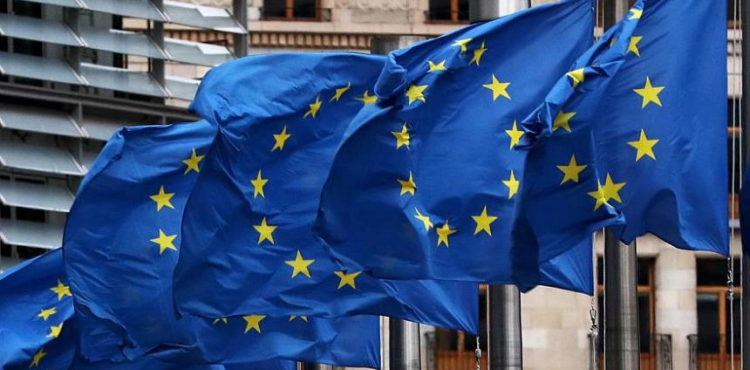Talks on the selection of new leaders for European institutions began amid talks and power tests between heads of state and government and bloc leaders in the European Parliament.
The focus of the confrontation on the presidency of the European Commission because those who will be elected to this position should get the support of heads of state and government and the absolute majority in the European Parliament, or 376 votes.
The political blocs in the European Parliament identified their candidates. The heads of these blocs on Tuesday morning rejected any external candidacy in a declaration adopted ahead of a meeting of heads of state and government in Brussels.
The liberal bloc, which includes the Renaissance list backed by French President Emmanuel Macaron, has refused to support the declaration. But the number of deputies signed by the EPP, the Socialists and the Greens is 395 and can marginalize the liberal bloc.
The President of the European Council of Poland Donald Tusk informed the Parliament of the position to be conveyed to the European leaders during an extraordinary summit held to draw lessons from the European elections, which was characterized by a participation rate of more than 50%, which strengthens the legitimacy of this Council.
Tusk will have less than a month to reach an agreement between the two European bodies before the June 20-21 summit.
"The Arush conflict will begin," said one of the contenders for the European Commission presidency, the leader of the Dutch Socialists, France Timmermans.
However, the reference to the series "conflict of the Arush" a harbinger of shame because his story is based on treachery and plots and massacres and the conclusion was so mysterious that it deserved the hopes of its followers.
The right-wing pro-European and special representative of the European People´s Party (EPP) is demanding the EU presidency in Brussels for his Bavarian candidate Manfred Weber. But he has no council approval and is not guaranteed to win the parliament.
Two other candidates represent the two other major blocs: Socialist France Timmermans and Danish liberal Margaret Wistiger.
The European People´s Party (EPP) and seven out of eight heads of state and government belong to the same political line to announce their support for Weber before the summit.
"Manfred Weber is in an advanced position and we will help him get a majority in the European Parliament," said the leader of the conservative Christian Democratic Party, Anigret Kramp-Karinbauer.
A number of leaders will try to persuade the EPP to drop its candidate to avoid a crisis. The rebel movement is led by French President Emmanuel Macaron but will not go as far as a vote in which France and Germany face up, a European official said.
McCron relies on the support of the eight heads of state and government from the liberal line and will seek the support of the five socialist leaders.
On Monday evening, Macaron met with Spanish Prime Minister Pedro Sanchez, who emerged victorious from the election. Madrid has expressed its willingness to form an alliance between the socialists and European liberals.
McCron is also expected to meet before the European summit, German Chancellor Angela Merkel, who supported Weber in the campaign but is not in favor of a "candidate-selected" system.
Officials in five EU bodies will change over the coming months: the speaker of parliament in early July, the president of the commission, the European foreign minister, the ECB governor in November and the council president in early December.
European Commission President Jean-Claude Juncker was the "chosen candidate" of the EPP in 2014. His successor must get the votes of the three main components of parliament: the EPP, the Socialists and the Liberals.
Thus, the chances of France Timmermans and Margaret Feitger arrive are nonexistent if the EPP insists on Manfred Weber.
If the latter withdraws, it will be necessary to reach an agreement between the Socialists and the Liberals to elect one of their candidates. "There was no alliance between liberals and socialists," said the leaders of the European People´s Party.
However, the candidate of the European People´s Party should move away from the scene in case it did not get an absolute majority, according to a number of leaders of this political line of France Press. Weber hinted that the EPP might decide to support France´s Timmermans against Margaret Wistiger.












